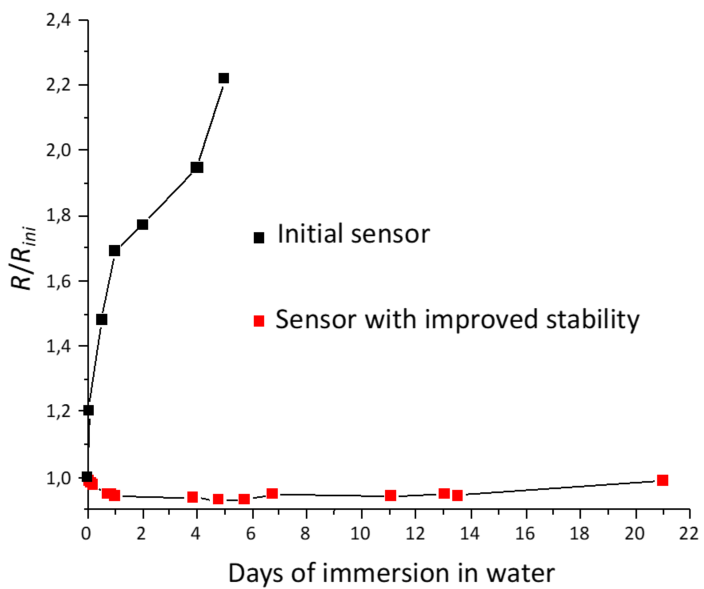CNRS' update on Fiware4water
As a provider of calibrated sensors for water analysis within the Fiware4water consortium, we have been working on the stabilization of the sensors’ response to operating conditions since the launch of the project.The first generation of sensors that we had previously developed within the framework of the EU project “Proteus” (http://www.proteus-sensor.eu/) was intended to monitor drinking water. These sensors were sensitive to certain chemicals, such as chlorine. However, their stability over time was not satisfactory as the sensors were found to last only a few days, which is not enough for field deployment. Therefore, we have sought to identify ways to improve the stability of the sensors as a primary objective.
Our first investigations demonstrated that the instability was mainly due to degradation of the sensing material. Thus, we envisioned several ways to protect the active material of the sensors, each of which would be compatible with the sensor design, before finally settling on a porous membrane as the optimal way to protect the sensors’ active material. The membrane is made from a cheap commercial polymer that can be easily deposited on top of the sensing material. We are currently in the stage of validating the reproducibility of our membrane deposition process and expect to have a validated approach in the coming weeks.

Author: CNRS
















